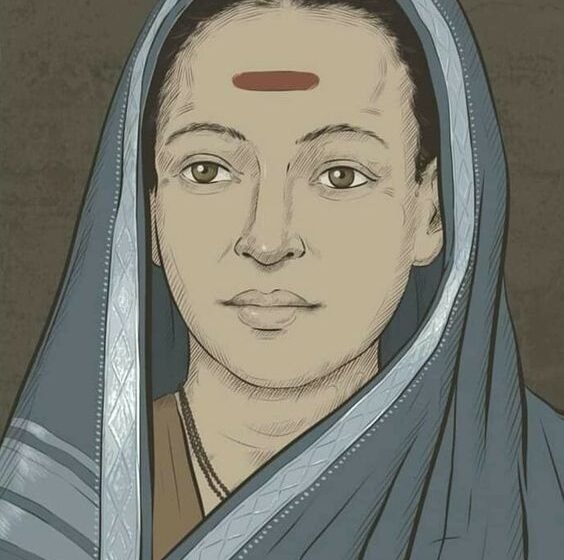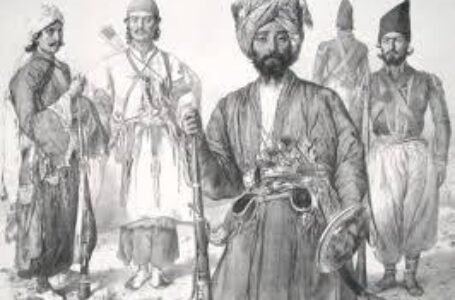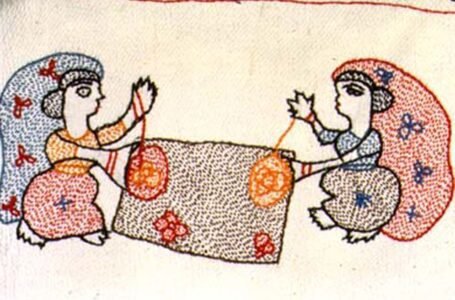Savitribai Phule: Introduction to Feminism, Women Education and Reformations

What is feminism? To give equality for Women like the rights given to a Man. Women are not physically strong as men, but she has the best mental power that shows her she is as strong as men. Comparing to this modern era, Women also shows their equality in physical strength along with a man. In this modern age, people are effortlessly talking about feminism; some people are even using this term immorally. The thing is “does anyone thought about how this feminism rose in the world?” Or “how does this came to Existence?”
During the late 14th and early 15th century in France, the first feminist philosopher and writer Christine de Pisan, confronted prevailing attitude towards women and women education. This was the first feminist movement in the world. These movements have happened long ago in comparison with India. These feminist movements have started only during the 19th century in India. It was Savitribai Phule from the State of Maharashtra in India first started feminism.

History of Savitribai Phule:
Savitribai Phule was born on January 3, 1831, in Naigaon, Satara District, Maharashtra, India. She was widely referred as “the mother of Indian Feminism.” She is also the first female teacher and headmistress in the Nation.
She was a typical Indian kid until the age of 9; then she got married at that age with Jyotirao Phule, who was at the age of 13. Basically, it was a child marriage, and it was very common in India during that period. Savitribai was illiterate at the time of her marriage. They both were living at Jyotirao’s father’s home. Her most prized possessions were a book give by a Christion missionary. On seeing her enthusiasm for reading, her husband tutored primary education along with his sister, Sagunabai. Later, Savitribai undertook her teacher training at Ahmednagar and in Poona (Pune). Later, she became a qualified teacher in 1847. With the help of her husband, she became the first qualified female teacher in India.

Savitribai as a Social Reformer:
Savitribai made herself as bold and righteous woman after educated. She wished to stand for all the women in India wants to be educated. Without any further hesitations, she along with her husband and his sister, Sagunabai established their first school for girls in Tatya Saheb Bhide’s wada in Pune’s Budhwar Peth in 1848. At the end of 1851, they both were running three different schools for women and girls at Poona (Pune). The curriculum and the teaching method of their schools were differed from those used in the Government schools that ran in the country. As a result of this, the number of girls receiving their education outnumbered the strength of the boys in those Government schools. This caused tremendous furies in the society. But Savitribai and her husband was also as furies as the society to establish their dream.

Once, it was said that Savitribai usually carries an extra saree in her bag for the school because she would be assaulted by the opposers with stones, dung, and verbal abuse. As a result of this reforms, the couple was told to leave Jyotirao’s father’s home because their work was considered as a sin as per the Manusmriti and its derived Brahmanical texts. After moving out from Jyotirao’s father’s house, the couple were welcomed and accompanied by Jyotirao’s friend Usman Sheikh. There Savitribai met Fatima Begum Sheikh. With her brother Usman Sheikh’s constant encouragement and support, Fatima already learned to read and write. After the arrival of Phule couple, with their support, she joined the Teacher training course. Later, she become the first Muslim female Teacher in the Nation. She is also a good friend of Savitribai Phule. They also establish two educational trusts: The Native Male School, Pune and The Society for Promoting the Education of Mahar, Mangs, etc. These two trusts also established more schools for the Dalits in the surrounding villages.

Savitribai Phule not only fought for Women’s educations, but she also fought for other social reforms like untouchable, Sati system, to help rape victims, also opened a shelter for widows in India. Together, the couple opened a care centre called Balhatya Pratibandhak Griha (Centre to stop child killing) for pregnant rape victims and helped them to deliver the baby. In 1868, there was a big trouble for the oppressed classes that they were prohibited to drink water from the common village well. To give a resolution to this problem, Jyotirao and Savitribai dug a well in their own backyard for them. This act made a huge outcry in the society. She also battled against child marriage and was a campaigner of widow remarriage.

Personal life:
Savitribai and Jyotirao had no children on their own. They adopted a boy named Yashwanthrao, who was a son of a Brahmin Widow who came to get shelter in their institution. In 1873, Jyotirao established Satyashodhak Samaj, it was primarily intended at eliminating discrimination and the need for social reformations. Savitribai also started to practice Satyashodhak marriage, where couple took an oath of education and equality. She was also bestowed to be the best teacher in the State by the British Government in 1852. Also, she was further awarded in 1853 by the Government in the field of education.

In 1897, a bubonic plague spread across the state Maharashtra. Merely, no one was escaped the plague, Savitribai, as a social reformer did not waste a second to help the people. She also opened a clinic for plague victims in Hadapsar, Pune. As a resilient personality, Savtiribai was also become the victim for the plague. While carrying a Plague victim kid in her arms, she also caught the disease herself. On March 10, 1897, Savitribai Phule departed this social life as a good reformer.

Legacy of Savitribai Phule:
Apart from Social Reformation, Savitribai was a good author and a poet. She published Kavya Phule in 1854 and Bavan Kashi Subodh Ratnakar in 1892. Her famous poem, “Go, Get Education” she encouraged the oppressed class people to get their rights and freedom by educating themselves at first. She remains an inspiration for many women rights activist in India.
Pune City Corporation created a memorial for her in 1983. On 10 March 1998, Indian Postal Service in Honour of Savitribai Phule released a stamp. Savitribai’s Birthdate (January 3) is celebrated as Balika Din (Girl Child Day) in Maharashtra, especially in Girl’s Schools. Many drama series and movies were inspired and created from the biography of Savitribai Phule. In 2021, Pune University created a life-sized bronze metal Statue of Savitribai Phule to honour her legacy.


